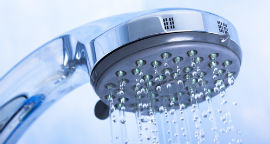2015 was a great year to be a landlord. Despite us all thinking a Tory government would mean we could rest easy for another five years, the recent Budgets have significantly changed the tax situation of buy-to-let landlords. And it hasn’t been good news. But that’s not what we’re here to talk about today.
I speak to landlords and letting agents all the time, and every day I meet people who are confused or unsure about the legally required certificates and safety checks that are needed to rent a property out here in sunny Edinburgh. Given how many of these have changed even in the last few years, this doesn’t come as a surprise. Chances are, unless you’re dealing with HMOs and have a council official checking your property every year, a few of these changes might have passed you by.
So to help the good landlords of Edinburgh and beyond (and a fair few of the letting agents), here’s the full list of checks and certificates you need to be legal, and how often you need to get them done.
- Legionella risk assessment
If you’re a landlord in Edinburgh, or for that matter anywhere in the UK, you’re now required under the Health and Safety at Work Act to carry out a legionella risk assessment on your property, and to manage the risk to your tenants from legionella. Best practice is for risk assessments to be reviewed on an annual basis unless the risk assessor recommends otherwise. Legionella risk assessments for landlords and letting agents are our bread and butter here at Legionella Edinburgh, so if you’ve got any questions about this feel free to give us a call.
- Landlord’s Gas Safety Certificate
If you’ve got a gas appliance in your property, you need a Gas Safe registered engineer to check that it is safe to use, and give you a Gas Safety Certificate. While you’ve got them there, it makes sense to get your gas appliances serviced as well. This should prolong their working life, and help prevent those late night calls about the boiler not working. The Gas Safety Certificate has to be renewed on an annual basis.
- Carbon Monoxide Alarms
The official Scottish Government guidance on CO alarms has now been released, and thankfully long life battery operated CO alarms are sufficient – I for one was worried I’d be calling out my electrician again to fit mains wired CO alarms. You now need one CO alarm in every room with a gas appliance, excluding gas appliances for cooking. So if you’ve just got a gas hob in the kitchen, you won’t need an alarm there, but if the boiler is hiding behind a kitchen cupboard, you will. In practice, this means most properties will need a CO alarm by the boiler, and by the gas fire if you’ve got one. You’ll also need a CO alarm in any bedroom or living room that has a flue running through it. Be sure to check when the alarms expire so that you know when to replace them, and also make sure you buy sealed CO alarms where the battery can’t be tampered with – if it comes with two AA batteries in the pack, you’ve got the wrong type.
- Fire Alarms
[Edit – from March 2019 either mains wired alarms or tamper proof long life lithium ion battery alarms can be fitted to meet the Repairing Standard]
While we’re on the subject of alarms, the guidance on mains wired smoke alarms changed back in 2013. When we say guidance, we mean the legal requirement under the Repairing Standard to provide adequate provision for the detection of fire in a property. You are now required to have a mains wired smoke alarm in every circulation space (or hallways as us laypeople call them), in the living room of the property, and a heat detector in the kitchen. If your property is on more than one level, you’ll need a smoke alarm in the hallway on each level. All these alarms need to be interlinked so if one goes off, they all go off. It’s not quite at the level of HMOs, which need alarms in every single room, but it’s quite a change for people still relying on battery smoke alarms. There’s no formal date by which you have to comply with the guidance, but if you had a fire and hadn’t done anything since the change in 2013 (or even since mains wired smoke alarms were first required in 2007) I wouldn’t want to be in your shoes. Again, mains wired fire alarms do expire so check the dates on your alarms so you know when these need replaced.
- Electrical Safety – EICR
Let’s get the easy bit out the way first. From December 2015, you need an Electrical Installation Condition Report (EICR) for all new tenancies. This is a check of the fixed wiring in your property, and lasts for five years, or less if the electrician who carries it out feels it needs to be renewed more frequently (which is a subtle way of telling you to do some rewiring). By December 2016, you’ll need an EICR for all rented properties, new tenancies or not. In fairness, it’s long been best practice to have an EICR carried out on rented properties (or PIRs as they used to be known). The new legislation and changes to the Repairing Standard, introduced in the Housing (Scotland) Act 2014, just makes this a legal requirement.
- Portable Appliance Testing – PAT Testing
Along with the EICR, you’re now legally required to have PAT testing carried out on any electrical appliances you provide in your property. If you’re not sure what needs to be PAT tested, check the end of the cable and if you find a plug there, it needs tested. This includes fridge freezers, ovens, hobs and other white goods, so don’t be thinking that you don’t need to carry out PAT testing as you don’t provide lamps, kettles and toasters to your tenants.
The guidance on PAT testing isn’t quite as clear as it could be. It states that you have to carry out PAT testing along with an EICR, ie every five years. However, because many landlords and letting agents (including us here at Legionella Edinburgh) have taken the time to carry out training so they can carry out PAT testing, PAT testing doesn’t have to be carried out by your electrician when they carry out the EICR. Any competent person can carry out PAT testing. Furthermore, the accepted rule of thumb has long been that PAT testing should be carried out annually, but this hasn’t been cemented in the guidance; as long as you get it done every five years you’re probably keeping within the law. Annual PAT testing is still the best practice recommendation of the landlord associations however.
- Energy Performance Certificates
If memory serves these became a legal requirement back in 2009, and everyone moaned about this then. However, they do last for ten years, and every property bought in the last few years will have come with one as part of the Home Report. It’s a legal requirement to include the Energy Rating of your property on any advert and display a copy of the Certificate in the property, so no letting agent will advertise your property without this.
Oh, and finally – don’t forget to fit a fire blanket in the kitchen of your property. It’s not a legal requirement, but it’s a lot cheaper than dealing with a charred kitchen.
Hopefully you’ve found this article informative and useful. Here at Legionella Edinburgh we and our trusted contractors can provide you with the full list of legally required certificates and safety checks. If you’d like us to help just call 0131 210 0054 or email info@legionellaedinburgh.com
Kevin Dempsey
Links
https://www.prhpscotland.gov.uk/repairs-application-and-guidance – This page includes links to the Scottish Government’s guidance on fire alarms, carbon monoxide alarms and electrical installations and appliances
http://www.gov.scot/Topics/Built-Environment/Housing/BuyingSelling/Home-Report/epcs – details on Energy Performance Certificates
http://www.hse.gov.uk/legionnaires/legionella-landlords-responsibilities.htm – details of what landlords have to do about legionella
http://www.gassaferegister.co.uk/advice/renting_a_property/for_landlords.aspx – details of what landlords have to do about gas safety





